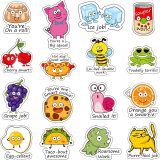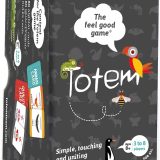I am often asked by parents about how to help their children develop positive social skills, such as giving compliments to others. Complimenting others is a powerful tool in building healthy relationships and creating a positive environment. It not only helps to make someone feel good but also strengthens the relationship between the two people.
Table of Contents
Importance of Complimenting Others
- Enhances self-esteem: Giving compliments to others can help boost their self-esteem and confidence, which can lead to improved relationships and a more positive outlook on life.
- Improves relationships: When children learn to give compliments, they learn to appreciate and value others, which can help them form stronger relationships with those around them.
- Creates a positive environment: A child who is skilled in giving compliments can create a more positive environment for themselves and those around them, helping to build a supportive community.
Detailed Tips
Teach the child what a compliment is: Before a child can begin giving compliments, they need to understand what a compliment is and what it means. Explain to them that a compliment is a kind and positive statement about someone or something.
Encourage the child to observe: Teach the child to pay attention to the people around them and notice things that they like about them. Encourage them to think about what they appreciate about others and what they think is special about them.
Practice giving compliments: Help the child practice giving compliments by role-playing with them. You can pretend to be different people and have the child give you compliments. This will help them get comfortable with the idea of giving compliments.
Make it a habit: Encourage the child to make giving compliments a habit by encouraging them to give at least one compliment a day. This can be to anyone, such as a family member, a teacher, or a friend.
Celebrate their progress: Make sure to acknowledge and celebrate the child’s progress in giving compliments. This will help them feel proud and motivated to continue giving compliments in the future.
Sample Activities
Compliment Jar: Create a “compliment jar” where the child can write down compliments they have received or given. Read these compliments together as a family to reinforce the positive impact of giving compliments.
Compliment Collage: Have the child create a collage of compliments they have received or given. This can be a visual representation of the positive impact that compliments can have.
Compliment Scavenger Hunt: Challenge the child to find compliments for different things throughout the day, such as for a friend, a sibling, or a favorite toy. This can help them to see the many different things they can compliment others on.
Role-Playing Scenario
Here’s a simple role-playing scenario that parents can use to help their child practice giving compliments:
- Set the scene: Explain to the child that you are going to role-play and that they are going to pretend to give compliments to different people.
- Start role-playing: Take turns playing different characters and have the child give compliments to each person. For example, you can play a friend, a teacher, a family member, etc.
- Give feedback: After each compliment, provide feedback to the child on what they did well and what they could improve. For example, if the child gives a compliment like “You have a pretty dress”, you can encourage them to add more detail, like “Your dress is so pretty, the colors are so bright and cheerful”.
- Practice, practice, practice: Continue role-playing and giving compliments until the child is comfortable and confident in giving compliments to others.
By role-playing, children can practice giving compliments in a safe and controlled environment and receive feedback and support from a parent. This can help them feel more confident and comfortable giving compliments in real-life situations.
Evidence-Based Citation
Studies have shown the positive impact of compliments on children’s self-esteem and relationships. For example, a study by Park and Kim (2010) found that children who were given compliments had higher levels of self-esteem and were more likely to have positive relationships with others.
In conclusion, teaching children to give compliments is an important part of developing positive social skills. By following these tips and engaging in fun activities, you can help your child develop the skills they need to give compliments and build healthy relationships with those around them.
Recommendations
This post may contain affiliate links which means I may receive a commission for purchases made through links. I will only recommend products that I personally recommend! Learn more on my Private Policy page.
Punny Rewards Stickers

Nice rewards: cute incentive stickers are meaningful reward or gift for teachers and parents to send to children, which are suitable for study at home, kindergarten classroom students, and your child knows that they are achieving exciting results.
Positive Affirmation Cards

Positive affirmations cards that remind you why you are an awesome human! Light hearted and intended to be interpreted for your journey! Boost your confidence, self love, personal growth, and start your day with some positivity.
Totem: The Feel Good Game
This one-of-a-kind therapy game provides 160 cards and 6,400 ways to share how you appreciate the ones closest to you. Reinforce your bond with family, friends, and colleagues. Leave inspired, uplifted, and with some happy tears rolling down your cheeks




